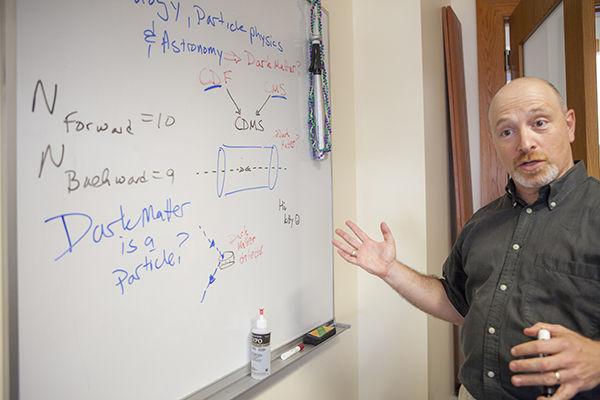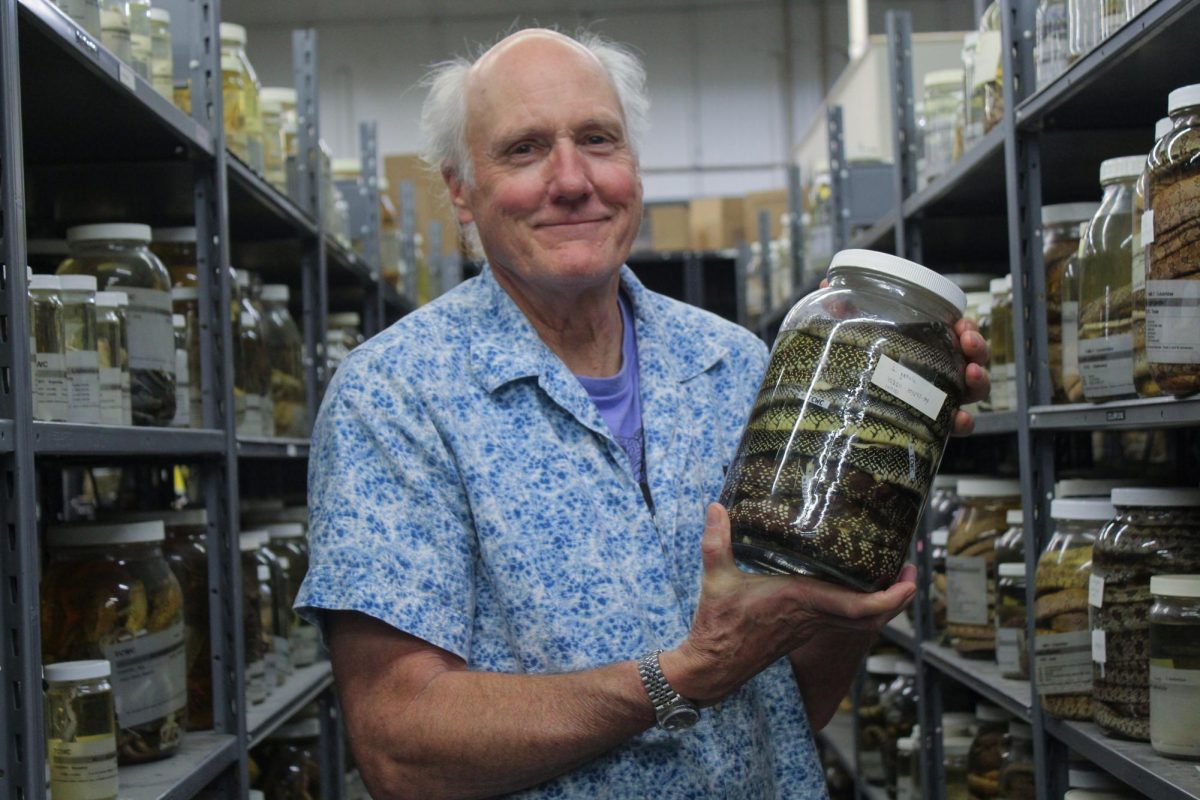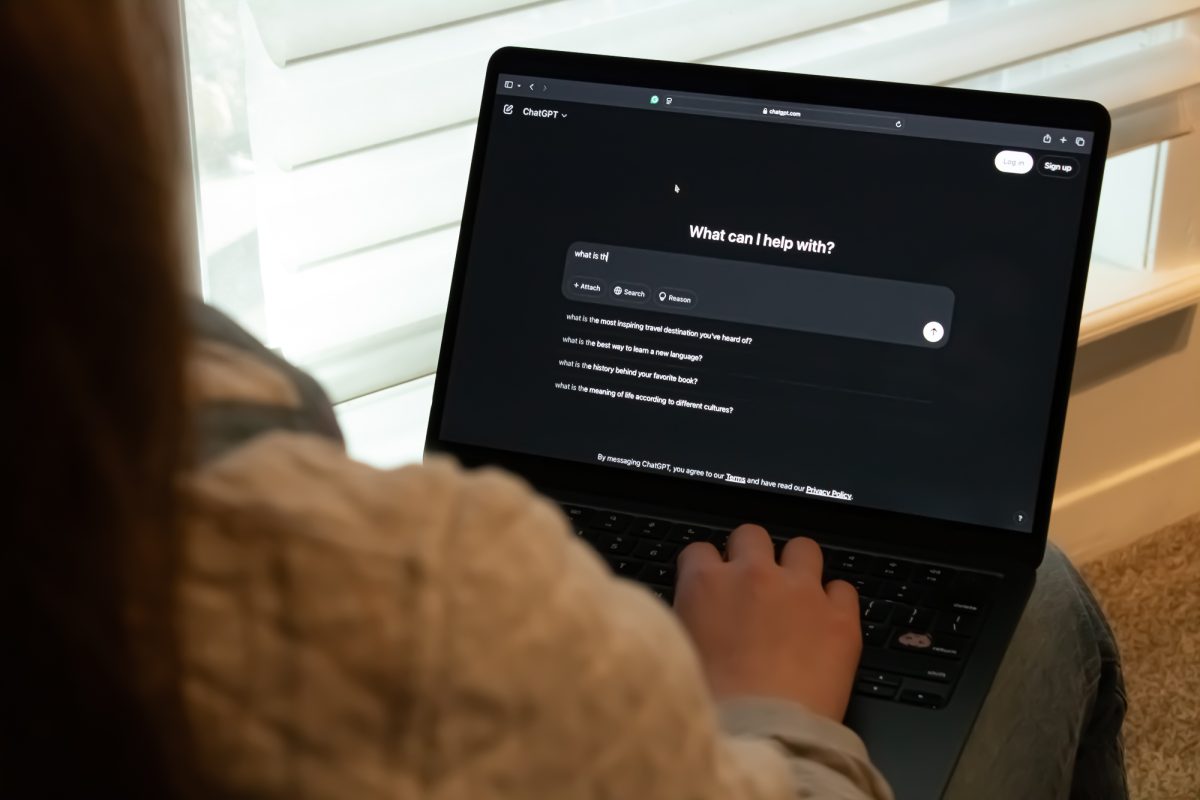Sam Scott, news writer, sat down with David Toback, physics and astronomy professor and member of the Mitchell Institute for Fundamental Physics and Astronomy, to talk about the life and work of a high energy experimental physicist.
THE BATTALION: Before you researched at places such as Fermilab’s Tevatron in Chicago, and the Hadron Collider in Switzerland, what originally interested you in high energy particle physics?
TOBACK: When I was a kid, I was in science class and we were talking about the atom, which I thought was kind of cool since we were talking about how things really worked and so I said, “Okay, what’s an atom?” And my eighth grade science teacher said, “Oh,” and he puffed up and he said, “Well, it’s a nucleus made up of an electron, that’s how you put together an atom, it’s fundamental.” I said, “Okay, well what’s a nucleus made of?” And he said, “Oh,” and he puffed up again, “It’s made of protons and neutrons, it’s fundamental.” And I said, “Okay, well what are protons and neutrons made of?” And there were not many people who knew back then and he didn’t know, and so he was kind of pissed off. But we looked up the answer, we talked to some real physicists, and the answer was quarks. So then I said to him, “Well what are quarks made of?” He said, “Darn it, Toback, I don’t know and the answer is nobody knows, and we don’t in fact know that they’re made of anything.” I want to know that answer. What are the fundamental particles?
THE BATTALION: You’re the spokesperson of the Collider Detector at Fermilab experiment, CDF. So if you could speak generally to the public, why should they be concerned with particle physics?
TOBACK: It’s a good question. There are a number of answers and some of them are satisfying to some people and not others and vice versa. Let me give you two of them, they’re very different. The first is that particle physics and the CDF experiment really tells us how nature really works at its very most fundamental. So if we want to understand who we are, how nature actually is as opposed to how we might like it to be, we need to do these experiments.
The opposite way of answering the question is, “Okay, how does it help me as a person? Is it going to cure aids? Is it going to build better frisbees? Is it going to bring world peace?” What I do know is that what they were studying in the 1800s — when they were studying this new electron thing and lightning in a bottle — people said, “Why is this useful, who cares?” And the answer is, well, it gave us electricity. It took us a while but everything runs on electricity. So to me, it is what I would call an investment and history has been very kind to the countries that have invested heavily in real knowledge in science and technology.
THE BATTALION: You’ve received awards such as the national faculty adviser of the year and the Thaman professor of undergraduate teaching excellence. What drives you to be both a physicist and an educator?
TOBACK: It’s fun for me. It’s just fun for me to teach. I think the stuff that I do is some of the most exciting stuff that there is. I want to tell people about it, and everybody should understand how the universe works, and what the fundamental things are in the universe, and what the Big Bang means, and what the evidence for the Big Bang is, and what dark matter is. It’s fun — it’s just fun. I can’t imagine anything more fun to do. I mean there are days I wake up and I say, “I can’t believe they pay me to get to have this much fun.”
THE BATTALION: What are your favorite classes to teach?
TOBACK: For the last number of years I’ve been teaching Astronomy and Physics 109, and that course is called “Big Bang, and Black Holes.” It used to be called “Big Bang, Black Holes, No Math,” but the math department got angry at that, so they said, “You can’t call it that, you can’t have classes called No Math.” And I said, “That’s why the students want to take it,” and they said, “You can’t do that.” We were using “A Brief History of Time” by Steven Hawking, and Hawking is an amazing man and the book is an amazing book but it was almost impossible to understand for the students. So what we did was, I created a course such that would explain that book, so they can now say, “Oh, that’s what he’s trying to say.”
THE BATTALION: So what other sorts of interests do you have outside of photons, quarks and dark matter?
TOBACK: I used to play guitar, but I don’t play as much as I used to. I enjoy playing with my kids, I enjoy playing with my granddaughter and I enjoy being the faculty advisor for the fraternity. I think one of my favorite experiences ever was being a namesake for a Fish Camp. That’s arguably one of the most fun things I’ve ever done. My wife, Catherine, and I shared that because she’s one of the most decorated advisors on campus — she’s won the Presidential, she’s won the Guthrie, and so we got to share a fish camp, and that was just as fun as it comes for me.
THE BATTALION: So if you could give any sort of advice to Texas A&M students, what would it be?
TOBACK: Figure out what it is that you really love to do, get awesome at doing it and then figure out a way to get paid to do it.
Prof: History ‘kind’ to investors in science
October 21, 2014

Vanessa Pena — THE BATTALION
David Toback is a member of the Mitchell Institute for Fundamental Physics and Astronomy and spokesperson for the Collider Detector at Fermilab.
0
Donate to The Battalion
$2790
$5000
Contributed
Our Goal
Your donation will support the student journalists of Texas A&M University - College Station. Your contribution will allow us to purchase equipment and cover our annual website hosting costs, in addition to paying freelance staffers for their work, travel costs for coverage and more!
More to Discover









